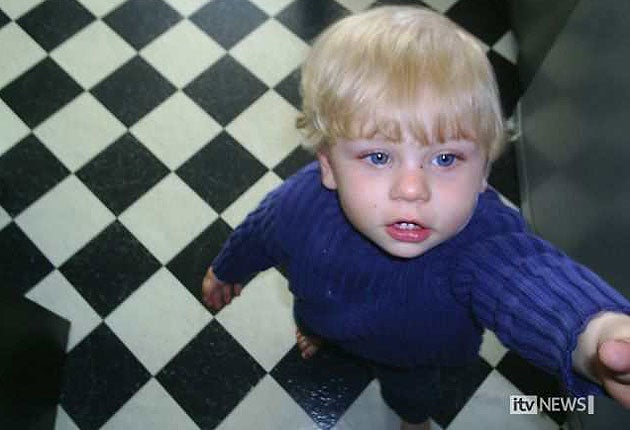Police wanted Baby P in care, programme reveals

Police wanted to place Baby P in care but were persuaded by social services to return him to his abusive mother, a documentary reveals today.
When the toddler was admitted to the North Middlesex Hospital in June last year with non-accidental injuries, police at the scene wanted to take him into care, according to the BBC's Panorama programme.
The programme said it obtained a confidential police report that described a "frank exchange of views" between police and Haringey social services, who preferred to return him to his mother.
The police eventually signed a care plan that allowed Baby P to be returned home, only to suffer further abuse before his death in August last year.
It is the latest revelation in the case of the brutal death of the blond, blue-eyed toddler that has sparked a major child care investigation at Haringey council. Baby P suffered more than 50 injuries despite 60 visits from the authorities over eight months.
Yesterday members of Haringey Council's Labour group maintained a wall of silence after attending an emergency meeting to discuss fresh developments in the case.
The councillors present at the meeting did not want to talk about what had been discussed and left the building by a rear exit down an overgrown back alley.
Cllr Ali Demirci refused to confirm he had even attended the meeting, saying: "I can't talk about this, I can't discuss what was said, you will have to speak to Labour Party head office."
However, the wall of silence was angering residents who believed councillors were "covering up" the events that led to Baby P's death to "save their own necks".
Resident Stephanie Biber was so enraged she marched to the Hornsey and Wood Green Labour Party head offices and stuck a poster to the front window that read: "Sharon Shoesmith you have blood on your hands. Council tax payers of Haringey refuse to pay council tax until Sharon Shoesmith is sacked."
Ms Shoesmith is head of children's services at the council.
Members met amid reports that the council's legal department advised that the child did not need to be taken into care just nine days before he died.
At a meeting of council officials on July 25 last year, a lawyer advised social workers that the evidence that Baby P was being abused was not strong enough to warrant removing the child from his mother, the Sunday Telegraph said.
The Panorama programme, to be broadcast tonight, reveals that it was not just police who disagreed with social services that Baby P should be taken away from his 27-year-old mother, who has since pleaded guilty to causing or allowing his death.
The documentary reveals that senior social worker Sylvia Henry, a team manager at the Tottenham social services office, wanted to place the child into care from as early as December 2006.
Ms Henry had even found a foster home for Baby P, where he was placed for a short period of time.
However, the placement was terminated when a member of Haringey's social service team sent him back to his mother.
Last week, the mother's 32-year-old boyfriend and another man, Jason Owen, 36, were convicted at the Old Bailey of causing or allowing his death.
Baby P's 27-year-old mother had already pleaded guilty to the same charge, which carries a maximum 14-year jail term. All three have been warned they will receive lengthy jail terms when they are sentenced next month.
Neil Williams, a Liberal Democrat councillor on Haringey Council, called for social workers' and police officers' concerns to be taken more seriously.
"I think we need to move towards a system whereby if people are concerned then it escalates to the highest level immediately, and I'm talking about the chief executive of the council, the leader of the council," he told BBC Radio 4's Today programme.
"Because at the moment we seem to have a system where if people want to create ripples, to raise their concerns, what happens is they throw a stone into the water and it just disappears and we have no trace of any concerns and no action taken."
Sue Berelowitz, Deputy Children's Commissioner for England, said properly trained staff and good assessments were "critical" to ensure that children were taken into care when necessary.
"There is a received wisdom, and for very good reason, that it is much better to keep children in their families as much as possible really," she told BBC Radio 4's Today programme.
"What is most important is that practice on the ground is very good amongst all professionals, whether they are social workers, paediatricians, health visitors or anybody else in the children's care system.
"And that we make sure that children are placed at the centre of all decision-making and that that is founded on good assessments, good record-keeping and so on, so that when a child needs to be taken into care that is done in a timely way."
* Panorama: What Happened To Baby P? will be broadcast on BBC One tonight at 8.30pm.